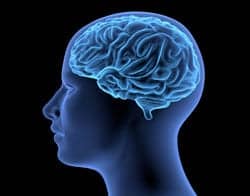Last Updated: 2008-01-30 17:32:27 -0400 (Reuters Health)
NEW YORK (Reuters Health) – In a study of US soldiers returning from Iraq, mild traumatic brain injury was associated with post-traumatic stress disorder (PTSD) and with physical health problems. In the absence of PTSD, however, these brain injuries are not significantly linked to physical problems, except for headache.
The long-term effects of mild traumatic brain injury, especially from blast explosions, is an important concern, yet the epidemiology is poorly understood, lead author Dr. Charles W. Hoge from the Walter Reed Army Institute of Research in Silver Spring, Maryland, and colleagues state.
In the present study, reported in The New England Journal of Medicine for January 31, the researchers used validated clinical instruments to assess the mental and physical health of 2525 US Army infantry soldiers who had returned from Iraq 3 to 4 months prior after being deployed for 1 year. Mild traumatic brain injury was defined as an injury causing a loss of consciousness or altered mental state (confused or dazed).
Overall, 124 subjects (4.9%) had loss of consciousness, 260 (10.3%) had an altered mental state, and 435 (17.2%) had other injuries.
PTSD was identified in 43.9% of subjects with loss of consciousness, 27.3% of those with altered mental status, 16.2% of those with other injuries, and in 9.1% of soldiers with no injuries.
Mild traumatic brain injury, especially involving loss of consciousness, was a risk factor for poor general health, medical visits, missed workdays, and somatic symptoms. As noted, however, the association between brain injury and physical problems, save headaches, disappeared after PTSD and depression were taken out of the picture.
"The strong associations between mild traumatic brain injury, PTSD, depression and physical health symptoms in combat veterans reinforce the need for a multidisciplinary approach centered in primary care," the authors conclude.
"Evidence-based studies of the management of symptom-based disorders and collaborative care approaches to the evaluation and treatment of coexisting mental disorders in primary care settings are important in designing intervention strategies," they add.
N Engl J Med 2008;358:453-463.
Copyright Reuters 2008. Click for Restrictions




